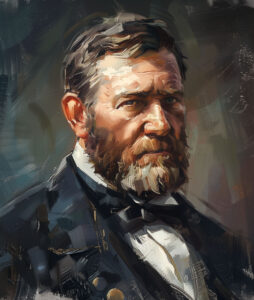Lincoln’s Forgotten Ally: Judge Advocate General Joseph Holt of Kentucky
Elizabeth D. Leonard; University of North Carolina Press
Kentuckian Joseph Holt did not immediately support the war for the Union and the struggle for freedom, but once he did, Elizabeth Leonard contends, he fully embraced those causes. Appointed secretary of war in December 1860, he traveled widely after Abraham Lincoln’s inauguration, denouncing secession. Holt was named judge advocate general of the Army in 1862, and in 1864 oversaw legal proceedings against soldiers, including the court-martial of Maj. Gen. Fitz-John Porter, and the work of military tribunals in the occupied South. Holt’s role in the trial of Northern and border state civilians suspected of disloyal activities was controversial since, as with the administrations of our two most recent presidents, he let military commissions try citizens who were not in uniform and not subject to court-martial rather than allowing the proceedings in civil courts. Holt permitted former Congressman Clement Vallandigham, a “Copperhead,” to be tried by military court, arguing such courts were not subject to judicial review. The Supreme Court initially supported this position but reversed itself two years later in ex parte Milligan and took jurisdiction, indicating the military had no right to try civilians where civil courts were still operating. Leonard’s view of how military trials were used in Holt’s day seems especially relevant today.
Many have criticized Holt’s 1864 report on the dangers of secret societies in the North and in border states, in part because he implicated prominent Northern Democrats. He courted more controversy following the war, overseeing the trial of Henry Wirz, Andersonville’s commander, and leading the investigation into Lincoln’s assassination. Convinced Jefferson Davis was responsible, Holt went to great lengths to try to prove it. While he failed in that effort, he secured the conviction of several who had been clearly implicated in John Wilkes Booth’s regicide, including Mary Surratt. Holt claimed that President Andrew Johnson disregarded a petition from members of the military commission seeking clemency for Surratt, but Johnson denied this. Some said that Holt actually withheld the petition from the president. Whatever the case, Lincoln’s Forgotten Ally shows Holt could never put the war behind him.
Originally published in the February 2012 issue of Civil War Times. To subscribe, click here.




